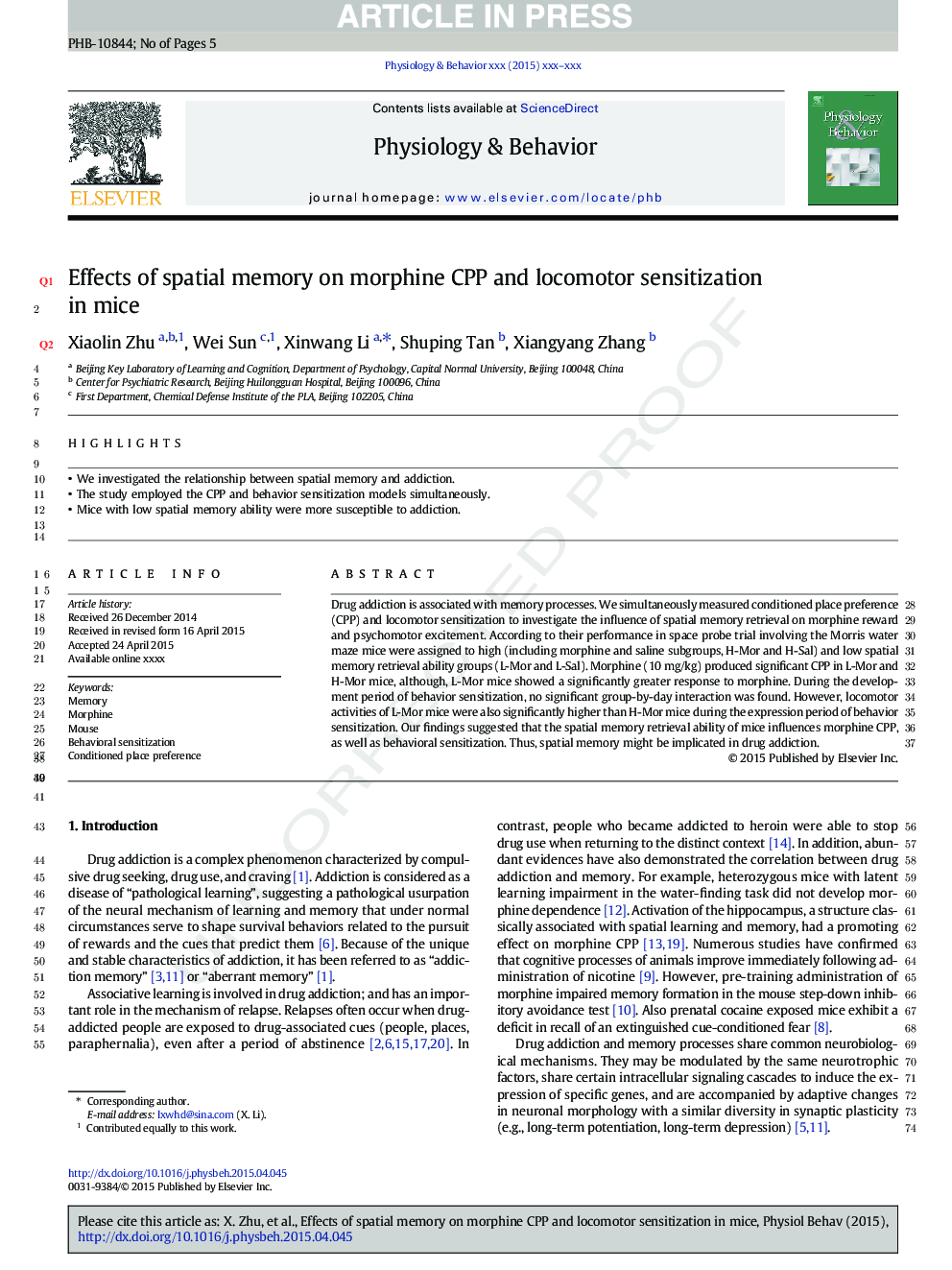| Article ID | Journal | Published Year | Pages | File Type |
|---|---|---|---|---|
| 5923576 | Physiology & Behavior | 2015 | 5 Pages |
Abstract
Drug addiction is associated with memory processes. We simultaneously measured conditioned place preference (CPP) and locomotor sensitization to investigate the influence of spatial memory retrieval on morphine reward and psychomotor excitement. According to their performance in space probe trial involving the Morris water maze mice were assigned to high (including morphine and saline subgroups, H-Mor and H-Sal) and low spatial memory retrieval ability groups (L-Mor and L-Sal). Morphine (10Â mg/kg) produced significant CPP in L-Mor and H-Mor mice, although, L-Mor mice showed a significantly greater response to morphine. During the development period of behavior sensitization, no significant group-by-day interaction was found. However, locomotor activities of L-Mor mice were also significantly higher than H-Mor mice during the expression period of behavior sensitization. Our findings suggested that the spatial memory retrieval ability of mice influences morphine CPP, as well as behavioral sensitization. Thus, spatial memory might be implicated in drug addiction.
Related Topics
Life Sciences
Biochemistry, Genetics and Molecular Biology
Physiology
Authors
Xiaolin Zhu, Wei Sun, Xinwang Li, Shuping Tan, Xiangyang Zhang,
